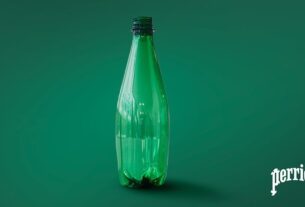Germany – BASF SE has invested €16 million in Pyrum Innovations, a technological business based in Dillingen/Saar, Germany, that specializes in the pyrolysis of waste tires.
BASF’s investment will support the expansion of Pyrum’s pyrolysis plant in Dillingen as well as the technology’s further spread.
Pyrum now operates a tire pyrolysis plant capable of processing up to 10,000 tons of tires per year. Two new production lines will be added to the existing factory until the end of 2022. As part of its ChemCycling project, BASF will take the majority of the pyrolysis oil and turn it into new chemical products using a mass balancing approach. The resulting goods will primarily target consumers in the plastics industry looking for high-quality, practical plastics made from recycled materials. BASF also recently signed an uptake agreement with Hungarian rm New Energy for the supply of pyrolysis oil derived from scrap tires.
In addition, Pyrum wants to establish more tire pyrolysis plants in collaboration with interested partners. The partnership arrangement will hasten the use of Pyrum’s unique technology in serial production. Future investors in the technology can be confident that the pyrolysis oil produced will be used to manufacture high-performance chemical products by BASF. As a result, the collaboration will help to close the loop on post-consumer plastic waste.
BASF and Pyrum predict that, in collaboration with additional partners, production capacities of up to 100,000 tons of pyrolysis oil obtained from waste tires will be built up over the next few years.
In addition to oil from mixed plastic debris, which is the long-term goal of the ChemCycling project, BASF will utilise pyrolysis oil from end-of-life tires as an additional raw material source.
The attributes of products made from pyrolysis oil employing a mass balancing approach are identical to those of products made from primary fossil resources. Furthermore, they have a lesser carbon footprint than traditional items. This is the outcome of a Life Cycle Assessment (LCA) analysis performed on behalf of BASF by the consulting firm Sphera. The LCA analysis, for example, might demonstrate this for the manufacturing of polyamide 6 (PA6), a plastics polymer utilized, for example, in the production of high-performance components for the automobile sector.
Under a mass balancing method, one ton of PA6 generated with Pyrum tire pyrolysis oil emits 1.3 tons less CO than one ton of PA6 produced with fossil feedstock. The avoided combustion of end-of-life tires results in lesser emissions.




